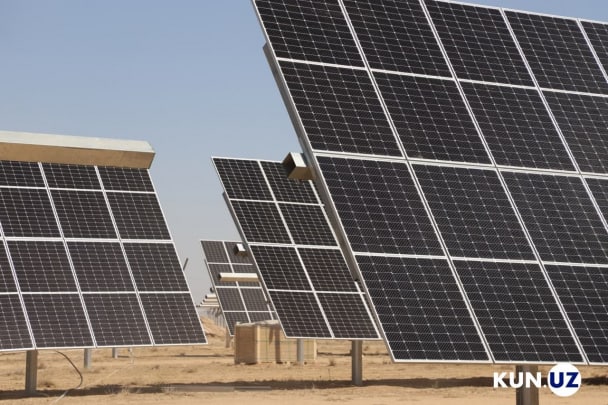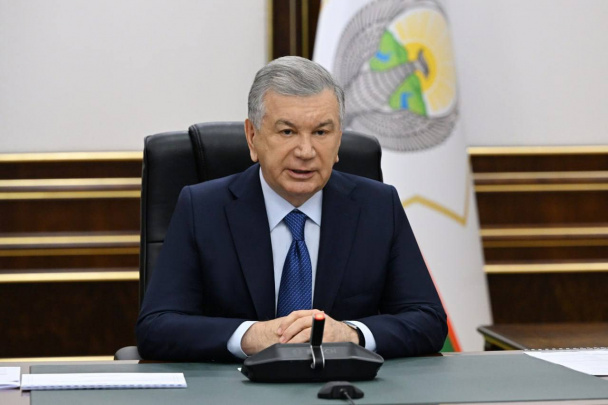Proposal made by Chinese company to build solar power plant in Namangan to be reconsidered

Фото: KUN.UZ
The Chinese company GD Power - Powerchina was declared the winner for the construction of a 150 MW solar photoelectric plant in Namangan. The company offered to supply electricity at 4.828 cents per kilowatt-hour. The Ministry of Energy considers the proposal too expensive. Economist Otabek Bakirov said that the price increase may have been influenced by the change in the form and design of the tender.
The tender winners for the construction of three solar photoelectric power stations in Uzbekistan were determined. In particular, the Chinese GD Power - Powerchina consortium was announced the winner of the 150 MW project in Namangan region. According to the Ministry of Energy, the proposal for this solar photovoltaic plant will be reviewed.
“Indeed, the proposal to supply one kilowatt-hour of electricity produced by GD Power - Powerchina Consortium (China) for a 150 MW project in Namangan region is expensive.
In this regard, the Ministry of Energy informs that additional negotiations will be held regarding the optimization of the tariff for this project.
It should be noted that during the implementation of this project, measures will be taken to reduce the electricity tariff, and special attention will be paid to safety aspects during the construction of the station,” the official statement said.
Economist Otabek Bakirov noted that the results of the tender announced on December 15 have significantly increased in price compared to the previous ones.
“The Chinese GD Power - Powerchina company’s bid for the construction of a 150 MW solar power station in Namangan was the winner for the supply of electricity at 4,828 cents per kilowatt-hour (or 543 soums at today’s prices).
Unfortunately, another major bidder, Abu Dhabi Future Energy Company – Masdar, did not bid on this lot. Turkey’s Alarko Holding AS company, apparently having no intention of winning, made an offer of 6.08 cents. The offer of Alarko Holding AS for another station construction lot in Khorezm (5.188 cents) is far from economic logic.
France’s Voltalia won the bid to build a 100 MW solar plant in Khorezm with a bid of 2.888 cents per kilowatt-hour.
For comparison, in previous years, Abu Dhabi Future Energy Company – Masdar was the winner with a bid of 2.68 cents for stations in Khorezm, Samarkand and Jizzakh.
The same consortium won with a bid of 1.80 cents to acquire the solar station in Sherabad.
Abu Dhabi Future Energy Company – Masdar won the contract to build a 250 MW solar plant in Bukhara with a bid of 3,044 cents per kilowatt-hour”.
The economist added that the price increase may have been influenced by the change in the form and design of the tender.
“Prices for new projects have officially increased. It seems that the shape and design of the tender also affected it. Because for the first time, 3 lot tenders for the construction of 3 stations were held simultaneously. This is not a very correct tactic, because there are only 3-4 companies working on the construction of solar stations in Uzbekistan. It is also possible that they might have marked one lot so that they do not compete with each other.
The station in Namangan will be the first solar station in the valley, in the region with the biggest imbalance in energy supply, it is not necessary to start like this,” Otabek Bakirov wrote.
Related News

15:00 / 08.07.2025
President Mirziyoyev reviews economic progress in Namangan

17:26 / 24.06.2025
Three arrested over attempt to sell counterfeit $20,000 for $14,000

13:50 / 19.05.2025
Over 2,000 traffic violations reported in Namangan in a day

21:10 / 14.05.2025



